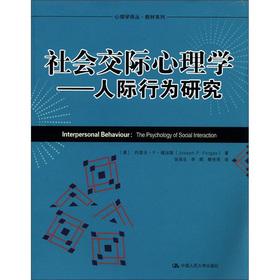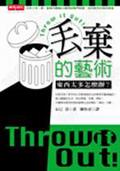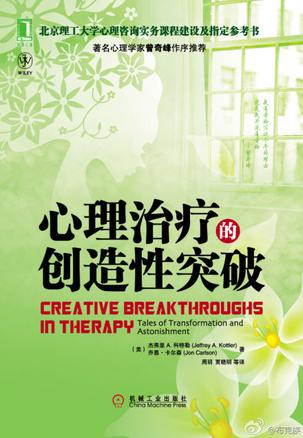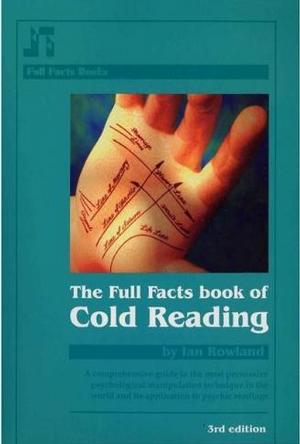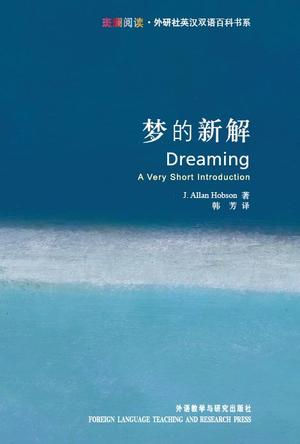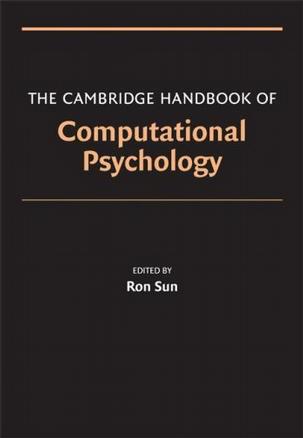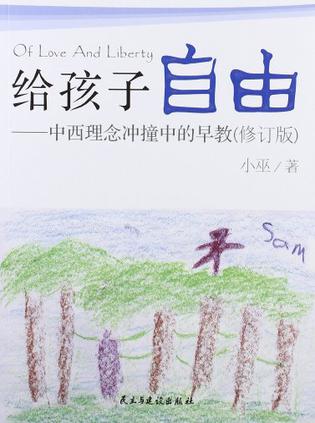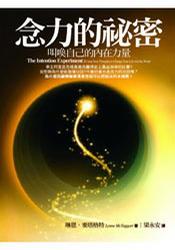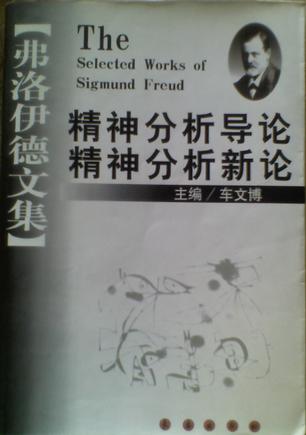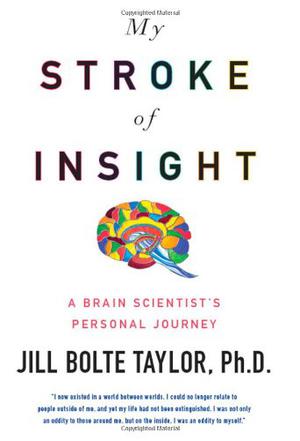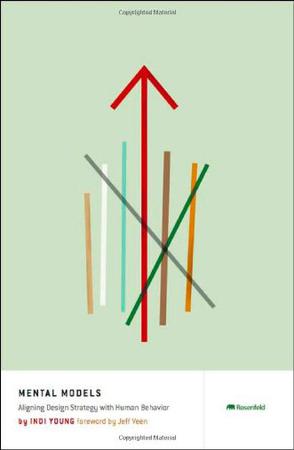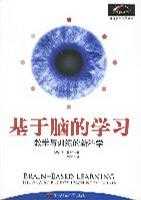欢迎来到相识电子书!
标签:心理学
-
为什么第一次见面不要选在寿司店
《为什么第一次见面不要选在寿司店》内容简介:在职场、在商业谈判、在人际交往中,我们都需要通过劝服对方来获得最大的赢面。《为什么第一次见面不要选在寿司店》以物理“力”学的全新角度,分为初级篇、中级篇、高级篇、达人篇和终极篇,深入浅出地诠释各种有效的说服方法、说服技巧,比如:如何把握说服的力度、如何让对方感到你的强势等,让你在博弈中获胜,让你瞬间成为交际沟通高手。 为什么第一次见面不要选在寿司店?翻开《为什么第一次见面不要选在寿司店》,找寻答案吧! -
受益一生的心理自愈术
《如何不躲在生命背后:受益一生的心理自愈术》内容简介:是否有种感觉让你说不出道不明,却着实令你“心神难安”?你不抑郁,吃得好睡得香;你不忧伤,工作起来井井有条;你亦没什么可烦心、可恐惧、可担忧的事。可是你终究想知道,那种让你心神不宁的感觉究竟是什么。 如果此时静下心来想一想,你或许就会发现,自己的脑海中一直挥之不去以下念头: 没有人喜欢我,我会孤独终老。(关爱缺失基模) 我在工作和生活中都离不开他人。(从属依附基模) 我不能轻易相信别人,因为他们会给我带来麻烦。(公正缺失基模) 永远也不可能有人理解我。(理解缺失基模) 殊不知,这些意念只是表明你已深受基模所苦。 想重塑自我,从而更好地把握人生、享受生活? 就请打开本书,开始心灵的自我疗愈之旅吧。 -
社会交际心理学
《心理学译丛·教材系列·社会交际心理学:人际行为研究》是一部研究人与人之间日常交际行为的社会心理学著作。主要论题包括我们对别人的行为进行观察和解释的方式,言语和非言语交流技巧的使用,印象整饰策略,有益的个人关系的发展和维持,社会影响过程和群体中的交际。本书对以往的心理学知识没有采用臆断或生吞活剥的做法,而是通过大量练习、活动、数据和例证,使具有各种知识背景的读者都能很容易地理解这些资料。本书自始至终都非常重视这些材料与日常社会生活问题的关联。 -
丟棄的藝術
你是否因為家裡或公司裡堆積如山的東西而煩惱? 真正豐富的生活,就從學會「丟棄」開始! 在每天的生活空間裡,讓我們覺得「現在也許不會用到,但以後也許有用」的事物,其實不勝枚舉。這種「想丟又不敢丟」的心態,往往使我們累積了一堆永遠都不會再用的東西。丟棄不同於製造垃圾,而是為了使生活更加快樂舒適,而善用你的智慧,選擇何者該捨、何者該留,更是一門藝術。本書把丟棄的藝術化為具體的方法,從「別說"暫時"、要說"即刻"」到「沒有後顧之憂的丟棄法」,教你力行實踐「丟棄哲學」的基本精神。 -
摆脱桎梏
中国科学院院士 陈可冀 作序推荐 人生就如同旅行,而抑郁症就如同旅行中不期而遇的旅伴。它会让我们痛苦、烦恼,也会桎梏我们的精神和思想。尽管不喜欢,但既然遇上,何不把它当做旅行中一次冒险的尝试。也许这段注定不平凡的旅程会让我们看到别人看不到的风景,品尝到非凡的人生滋味。当这段旅程结束时,你会发现一个新的、 美丽的旅程正在等待脱胎换骨的你。 《摆脱桎梏-抑郁症康复的7步疗法》,本书是一本简单、实用的抑郁症治疗指南,书中描述了走出抑郁的7站式旅程以及我们对自身生活加以控制、从而发现希望和快乐的步骤。该书旨在使每一位受抑郁症困扰的患者受益,从轻微的临床症状不明显的抑郁症患者(如心境不佳)到各种抑郁重症患者(如自 杀企图或有明确计划的自杀)。借助作者本人多年的治疗病例,该书详细介绍了以下情绪康复疗法:食物和营养补充、中药、运动锻炼和舞蹈、心理疗法、冥想和意象导引以及精神锻炼和祈祷。此书在美国出版后,得到多位知名专家的好评,希望可以对中文读者有所裨益。 -
心理治疗的创造性突破
心理治疗是一个冒险的旅程,冒险意味着不确定下一步会发生什么。 本书是目前世界上极具创造性的心理治疗师联袂奉献的杰作,他们真正实现和达到了心理治疗的最高境界,即把心理治疗当做一种助人的艺术,呈现了人与人之间所互动出来的艺术作品。读着这本书,会被全然地吸引并陶醉其中,作为同行充满了敬仰和钦佩,作为同道有着深深的理解和共鸣。 创造不是凭空的,这些治疗师所呈现的不同寻常的创造性均来自爱,对服务对象真正的爱、对治疗工作发自内心的爱。爱会启发人的智慧,会跨越不可能去行动。 这本书里,每位治疗师所展现的工作都基于不同的学派、治疗理念、治疗技术,他们有的是专门的临床医师,有的是督导师、专业学者、研究者、作者以及顾问。这群人具有不同的年龄特征、文化背景、性别、工作对象以及视角等,而他们的共同点则是愿意将工作做到极致,愿意设计很多新的环节,用各种不同的方法使人们的生活丰富多彩。 这些治疗师有着对人类真正的悲悯和关怀,这是对人类的爱、对人性的关注。这使他们在面对一个又一个难以解决的治疗困境、一个又一个深陷困扰似乎毫无出路的来访者时,迸发出不同寻常的智慧及出乎意料的想法,而他们却又认为真正创造性的源泉来自来访者。 -
读心术大全集
《读心术大全集(超值白金版)》是一门通过人的外在表现来探测人的心理活动的学问,是认识自己、看透别人和看透人性的学问。社交高手懂得通过密切关注对方的相貌,甚至连对方的言语、眼神、小动作等多方面的蛛丝马迹都会认真对待,仔细分析其真实意图。人的一举一动都在泄露“天机”,一个无意识的动作,一句不经意的话语,都能反映人深藏不露的本意。在人际交往中,如何才能看人“不走目艮”?如何才能瞬间识破他人心?如何才能在不为人知的情况下了解和影响他人?“读心术”将心理学知识应用于日常工作和生活中,教你在与人交往的过程中灵活运用读心的方法,用眼睛洞察一切,“读”懂他人的微妙心思,并对此作出精准的判断,使自己成为所在行业的终极赢家,进而在事业上取得突出的成就,赢得美好、幸福的人生。 《读心术大全集(超值白金版)》是一部系统讲解读心术原理、方法和现实运用的图书。全书分为原理篇、方法篇和提升篇:原理篇通过观察身体反应、面部表情、感官特征等方面为大家介绍读心术的基本原理。方法篇详细介绍各种读心、识人的具体方法,如何通过一个人的外表、言谈、肢体动作、面部表情、行为习惯等方面了解一个人的内心,深入细致地分析一个人内心的真实想法和目的。最后,读心的目的是为了与他人更好地相处,在提升篇中为大家介绍了一系列了解他人的心理策略,有助于读者在职场、商场和生活中与他人和谐相处并顺利实现自己的目标和愿望。同时,在有些章节的最后我们精心配置了相应的测试题,有助于让读者通过测试更好地了解自己,有针对性地取长补短,成就完美的人生。 -
梦的新解
梦是黑白分明的还是色彩斑斓的?盲人在梦里能看见吗?梦为何如此怪诞?梦的目的何在?梦如何维系和拓展精神活动?人们在梦里肆意疯狂是不是为了避免同样的疯狂在清醒时上演?为什么说睡眠不仅有益健康,也是生命所必需? 本书对基础脑科学研究的发现、睡眠实验室研究以及睡眠和梦的近期临床研究做了简要的总结,并使用大量梦例来解释新的激活整合梦理论如何从生理学角度阐明梦的普遍形式特征,从而让读者在领略到现代睡眠科学迷人发现的同时获得机会去重新思索自己的梦理论。 -
The Cambridge Handbook of Computational Psychology (Cambridge Handbook Of...)
This book is a definitive reference source for the growing, increasingly more important, and interdisciplinary field of computational cognitive modeling. Research in computational cognitive modeling explores cognition through developing detailed, process-based understanding by specifying computational mechanisms, structures, and processes. This book substantiates this approach through overviews and many examples. -
给孩子自由
这是小巫继《让孩子做主》之后推出的新作,重点在于探讨1岁至4岁幼儿早期教育的各个领域。作者根据西方先进的教育理念,结合自身的实际经历以及咨询案例,详细解读儿童秩序感、道德感、情绪发展、大脑发育及学习过程等话题,在如何培养身心健康、独立智慧的儿童方面,提出了诸多精辟独到的见解。 本书作者旅美多年,身为教育硕士,深谙东西方教育手段的异同,许多观念发人深思,对于关注早教的家长们来说,极具参考借鉴的实用价值。 -
念力的祕密
拳王阿里是怎樣靠意念贏得史上最血淋淋的比賽? 念力如何影響安慰劑的功效,讓病人不藥而癒? 為什麼西藏喇嘛單憑意念就可以把結冰的水燒開? 念力不再口說無憑,你自己就可以做得到! 讓琳恩.麥塔格特為大家合盤托出心想事成的科學證據! ……………………………………………………………………………… 你可能從來沒想過: 一個簡單的意念,就可以改變世界!別懷疑這個心靈力量! 宇宙是由一個浩瀚的能量場互相連接,每個意念都帶著具體可觸的能量,足以轉化他物,如果善加利用,不但可以改善個人生活,甚至可以轉動世界。 ……………………………………………………………………………………… 人的意念足以影響物理世界! 這本書是對石破天驚的「念力科學」一個全面回顧與綜合。 以世界各地頂尖科學家的發現為依據,《念力的祕密》證明了「人的意念足以影響物理世界」。它也是第一部邀請讀者一起來參與群體念力實驗的著作。 全球知名尖端科學實驗室爭相研究! 以普林斯頓大學、麻省理工學院、史丹佛大學和其他世界知名大學的尖端實驗為基礎,《念力的祕密》揭示出,整個宇宙是由一個浩瀚的量子能量場互相連接。心思意念可以產生具體能量,如果善加利用,這種能量不但可以改善個人生活,而且(透過眾志成城)足以改變世界。 -
弗洛伊德文集
根据社会需要与读者要求,经与长春出版社商定,出版《弗洛伊德文集》修订本,共八卷。各卷内容如下: 第一卷,癔症研究,弗洛伊德精神分析形成时期的重要著作,包括《癔症研究》、《日常生活心理病理学》。这两部著作均属于弗洛伊德心理病理学的范畴。 第二卷,释梦,弗洛伊德精神分析学形成的标志性著作,包括《释梦》以及相关的《论梦》、《释梦在精神分析中的运用》、《论释梦的理论与实践》。这些论著均属于精神分析一大理论支柱~一释梦的范畴。 第三卷,性学三论与论潜意识,弗洛伊德早期关于精神分析学另外两大理论支柱——性本能论和潜意识论的主要专著,包括《性学三论》、《儿童性理论》、《“文明的”性道德与现代神经症》、《爱情心理学》、《论自恋:导论》、《本能及其变化》、《压抑》、《力比多类型》、《诙谐及其与潜意识的关系》、《论潜意识》、《精神分析中的潜意识的注释》。这些论著均属于弗洛伊德性心理学与潜意识论的范畴。 第四卷,精神分析导论,弗洛伊德第一部全面和系统阐述精神分析学的代表性著作。《精神分析导论》(初版名为《精神分析引论》),属于弗洛伊德早期对读者进行精神分析导读著作的范畴。 第五卷,精神分析新论,弗洛伊德关于精神分析学专著的续篇,包括《精神分析新论》(初版名为《精神分析引论续编》)、《精神分析五讲》、《精神分析运动史》、《精神分析纲要》。这些著作均属于弗洛伊德精神分析新论的范畴。 第六卷,自我与本我,弗洛伊德后期关于精神分析学的修正、补充和发展的重要论著,包括《超越快乐原则》、《群体心理学与自我的分析》、《自我与本我》、《抑制、症状与焦虑》。这些论著基本上属于弗洛伊德社会心理学的范畴。 第七卷,达·芬奇对童年的回忆,弗洛伊德关于美学方面的重要论著,包括《戏剧中的变态人物》、《作家与白日梦》、《达·芬奇对童年的回忆》、《詹森的(格拉迪沃>中的幻觉与梦》、《米开朗基罗的摩西》、《陀思妥耶夫斯基与弑父者》、《非专业者的分析问题》。这些论著均属于弗洛伊德美学心理学的范畴。 第八卷,图腾与禁忌,弗洛伊德有关人类学、社会学、文化学、宗教学、历史学和哲学等方面的代表性著作,包括《图腾与禁忌》、《一个幻觉的未来》、《文明及其缺憾》、《为什么有战争?》、《摩西与一神教》。这些论著基本上属于弗洛伊德心理哲学的范畴。 -
Memory
Why do we remember events from our childhood as if they happened yesterday, but not what we did last week? Why does our memory seem to work well sometimes and not others? What happens when it goes wrong? Can memory be improved or manipulated, by psychological techniques or even 'brain implants'? How does memory grow and change as we age? And what of so-called 'recovered' memories? This book brings together the latest research in neuroscience and psychology, and weaves in case-studies, anecdotes, and even literature and philosophy, to address these and many other important questions about the science of memory - how it works, and why we can't live without it. -
大脑开窍手册
◎李偉文、曾志朗、Daniel Gilbert、Steven Johnson、Sandra Blakeslee聯合推薦 不是腦筋不好,是你還沒開竅! 你的腦袋會耍些什麼詭計?怎樣才能完全發揮腦力?最新內幕消息,本書一次完整揭露! 關於腦的盲點、迷思、誤解,實在多得數不清 我們只用了10%的腦力,還有90%的腦力未開發?……簡直胡扯! 撞到頭會失憶,再撞一次頭,又能恢復記憶?……完全瞎掰! 放古典樂給肚子裡的寶寶、剛出生的小嬰兒聽,可以增進他們的智力……毫無根據! 年紀大的人腦筋不好,是因為腦細胞死掉?……沒這回事! 腦袋愈大愈聰明?腦褶愈多愈聰明?左撇子比較聰明?……全都是一派胡言! 這些說法為什麼不正確?或許你搔破腦袋也想不到,不過,有兩位超級好心的一流神經科學家,已經迫不及待要讓你知道:只有對腦袋瞭解愈多、誤解愈少,才能讓你的頭腦運作得更好! 所以,這本書不只幫你破除謠言,還要給你解決生活難題的實用訣竅,包括: 長長久久的快樂要怎麼找? 青少年該怎麼教? 什麼時候學習語言最好? 臨時抱佛腳到底有沒有效? 還有該怎麼做,才能常保腦袋青春不老?…… 翻開《大腦開竅手冊》,先用科學知識補你的腦,幫助你更聰明、更勇敢、更成功的奧妙,都可以從你自己的腦袋裡找到! 「教育就是讓大腦能自然與豐富發展的歷程!」 --中央研究院院士/曾志朗 「如果我們要給腦袋找一本使用手冊,那麼這本《大腦開竅手冊》就是了!」 --《快樂為什麼不幸福》作者/Daniel Gilbert 「讀完這本書,從此你看待自己、看待你腦袋裡每一個念頭的想法,都不再一樣了!」 《開機》作者/Steven Johnson 「這本書讀起來輕鬆、易懂,而且充滿樂趣!要是所有科學家,都像這兩位作者那麼能寫,我們這些科普書作家,恐怕都要失業了……想知道怎麼在吵雜的環境中講行動電話,還能聽得清楚?這就是你買下這本書的眾多好理由的其中之一!」 《創智慧》作者/Sandra Blakeslee 「這本書起碼包括了數百篇研究論文與腦神經科學實驗的結果,可是卻生動得有如坊間的八卦雜誌般,精彩得屢屢令人擊節讚歎:『哇!原來如此!』在深入淺出條理分明的述敘中,本書破除了很多父母教養孩子的迷思,這些迷思或許來自於商業行銷上的刻意誤導,或來自於父母恐懼孩子『輸在起跑點』的焦慮。總是覺得父母在孩子教育上,要用心而不要太用力,閱讀這本書,就正是我們學習正確用心的開始!」 --本文作者為荒野保護協會榮譽理事長、《教養可以這麼浪漫》作者/李偉文 -
My Stroke of Insight
在线阅读本书 A brain scientist's journey from a debilitating stroke to full recovery becomes an inspiring exploration of human consciousness and its possibilities On the morning of December 10, 1996, Jill Bolte Taylor, a thirty-seven-year-old Harvard-trained brain scientist, experienced a massive stroke when a blood vessel exploded in the left side of her brain. A neuroanatomist by profession, she observed her own mind completely deteriorate to the point that she could not walk, talk, read, write, or recall any of her life, all within the space of four brief hours. As the damaged left side of her brain--the rational, grounded, detail- and time-oriented side--swung in and out of function, Taylor alternated between two distinct and opposite realties: the euphoric nirvana of the intuitive and kinesthetic right brain, in which she felt a sense of complete well-being and peace; and the logical, sequential left brain, which recognized Jill was having a stroke, and enabled her to seek help before she was lost completely. In My Stroke of Insight , Taylor shares her unique perspective on the brain and its capacity for recovery, and the sense of omniscient understanding she gained from this unusual and inspiring voyage out of the abyss of a wounded brain. It would take eight years for Taylor to heal completely. Because of her knowledge of how the brain works, her respect for the cells composing her human form, and most of all an amazing mother, Taylor completely repaired her mind and recalibrated her understanding of the world according to the insights gained from her right brain that morning of December 10th. Today Taylor is convinced that the stroke was the best thing that could have happened to her. It has taught her that the feeling of nirvana is never more than a mere thought away. By stepping to the right of our left brains , we can all uncover the feelings of well-being and peace that are so often sidelined by our own brain chatter. A fascinating journey into the mechanics of the human mind, My Stroke of Insight is both a valuable recovery guide for anyone touched by a brain injury, and an emotionally stirring testimony that deep internal peace truly is accessible to anyone, at any time. Questions for Jill Bolte Taylor Amazon.com: Your first reaction when you realized what was happening to your body was one you would expect: "Oh my gosh, I'm having a stroke!" Your second, though, was a little more surprising: "Wow, this is so cool!" What could be cool about a stroke? Taylor: I grew up to study the brain because I have a brother who is only 18 months older than I am. He was very different in the way he perceived experiences and then chose to behave. As a result, I became fascinated with the human brain and how it creates our perception of reality. He was eventually diagnosed with the brain disorder schizophrenia, and I dedicated my career to the postmortem investigation of the human brain in an attempt to understand, at a biological level, what are the differences between my brain and my brothers brain. On the morning of the stroke, I realized that my brain was no longer functioning like a "normal" brain and this insight into my brother's reality excited me. I was fascinated to intimately understand what it might be like on the inside for someone who would not be diagnosed as normal. Through the eyes of a curious scientist, this was an absolutely rare and fascinating experience for me to witness the breakdown of my own mind. Amazon.com: What did you learn about the brain from your stroke and your recovery that your scientific training hadn't prepared you for? Taylor: My scientific training did not teach me anything about the human spirit and the value of compassion. I had been trained as a scientist, not as a clinician. I can only hope that we are teaching our future physicians about compassion in medicine, and I know that some medical schools, including the Indiana University School of Medicine, have created a curriculum with this intention. My training as a scientist, however, did provide me with a roadmap to how the body and brain work. And although I lost my left cognitive mind that thinks in language, I retained my right hemisphere that thinks in pictures. As a result, although I could not communicate with the external world, I had an intuitive understanding about what I needed to do in order to create an environment in which the cells in my brain could be happy and healthy enough that they could regain their function. In addition, because of my training, I had an innate trust in the ability of my brain to be able to recover itself and my mother and I respected the organ by listening to it. For example, when I was tired, I allowed my brain to sleep, and when I was fresh and capable of focusing my attention, we gave me age-appropriate toys and tools with which to work. Amazon.com: Your stroke affected functions in your left brain, leaving you to what you call the "la-la land" of your right hemisphere. What was it like to live in your right brain, and then to rebuild your left? Taylor: When the cells in my left brain became nonfunctional because they were swimming in a pool of blood, they lost their ability to inhibit the cells in my right hemisphere. In my right brain, I shifted into the consciousness of the present moment. I was in the right here, right now awareness, with no memories of my past and no perception of the future. The beauty of La-la land (my right hemisphere experience of the present moment) was that everything was an explosion of magnificent stimulation and I dwelled in a space of euphoria. This is great way to exist if you don't have to communicate with the external world or care whether or not you have the capacity to learn. I found that in order for me to be able to learn anything, however, I had to take information from the last moment and apply it to the present moment. When my left hemisphere was completely nonfunctional early on, it was impossible for me to learn, which was okay with me, but I am sure it was frustrating for those around me. A simple example of this was trying to put on my shoes and socks. I eventually became physically capable of putting my shoes and socks on, but I had no ability to understand why I would have to put my socks on before my shoes. To me they were simply independent actions that were not related and I did not have the cognitive ability to figure out the appropriate sequencing of the events. Over time, I regained the ability to weave moments back together to create an expanse of time, and with this ability came the ability to learn methodically again. Life in La-la land will always be just a thought away, but I am truly grateful for the ability to think with linearity once again. Amazon.com: What can we learn about our brains and ourselves from your experience, even if we haven't lived through the kind of brain trauma you have? Taylor: I learned that I have much more say about what goes on between my ears than I was ever taught and I believe that this is true for all of us. I used to understand that I had the ability to stop thinking about one thing by consciously choosing to preoccupy my mind with thinking about something else. But I had no idea that it only took 90 seconds for me to have an emotional circuit triggered, flush a physiological response through my body and then flush completely out of me. We can all learn that we can take full responsibility for what thoughts we are thinking and what emotional circuitry we are feeling. Knowing this and acting on this can lead us into feeling a wonderful sense of well-being and peacefulness. Amazon.com: You are the "Singin' Scientist" for Harvard's Brain Bank (just as you were before your stroke). Could you tell us about the Brain Bank (in song or not)? Taylor: There is a long-term shortage of brain tissue donated for research into the severe mental illnesses. Most people dont realize that when you sign the back of your license as an organ donor, the brain is not included. If you would like to donate your brain for research, you must contact a brain bank directly. There is also a shortage of "normal control" tissue for research. The bottom line reality is that if there were more tissue available for research, then more scientists would be dedicating their careers to the study of the severe mental illnesses and we would have more answers about what is going on with these disorders. The numbers of mentally ill individuals in our society are staggering. The most serious and disabling conditions affect about 6 percent--or one in 17--adults and 9-13 percent of children in the United States. Half of all lifetime conditions of mental illness start by age 14 years, and three-fourths by age 24 years. For more information about brain donation to the Harvard brain bank, please call 1-800-BRAINBANK or visit them at: www.brainbank.mclean.org If you would like to hear me sing the brain bank jingle, please visit www.drjilltaylor.com! -
现代生活中的心理学
《现代生活中的心理学:适应21世纪(第8版)(英文影印版)》介绍了传统的和当代的心理学研究方法以及相关的应用知识,旨在教会学生正确面对生活中的诸多选择并对将来的职业进行规划,是公认的资料翔实、权威可靠的教科书,首版25年来深受师生欢迎。全书分16章,讨论了应用心理学中的热点问题,包括压力及应对方法、社会交往模式、人际关系、婚姻与爱情、个体从青年到成年的发展、职业与事业、身心健康、心理疾病与治疗等,从而帮助学生运用心理学知识了解自身和世界。 -
基于脑的学习
在过去二十多年里,跟上脑研究的爆炸式激增是具有挑战性的。但聪明的教育者却正在成功应用这些研究成果。其结果是一种与脑的最佳自然学习方式相一致的学习取向的出现。基于神经科学、生物学和心理学学科的研究,我们对于学习与脑之间关系的理解涉及情绪的作用、模式、意义、环境、身体节律、态度、焦虑、心灵创伤、评估、音乐、运动、性别和多种多样的教学方式。通过整合现有的脑知识与标准教育实践,《基于脑的学习》提出了能够将我们的学校转化成完全的学习型组织的途径。
热门标签
下载排行榜
- 1 梦的解析:最佳译本
- 2 李鸿章全传
- 3 淡定的智慧
- 4 心理操控术
- 5 哈佛口才课
- 6 俗世奇人
- 7 日瓦戈医生
- 8 笑死你的逻辑学
- 9 历史老师没教过的历史
- 10 1分钟和陌生人成为朋友



